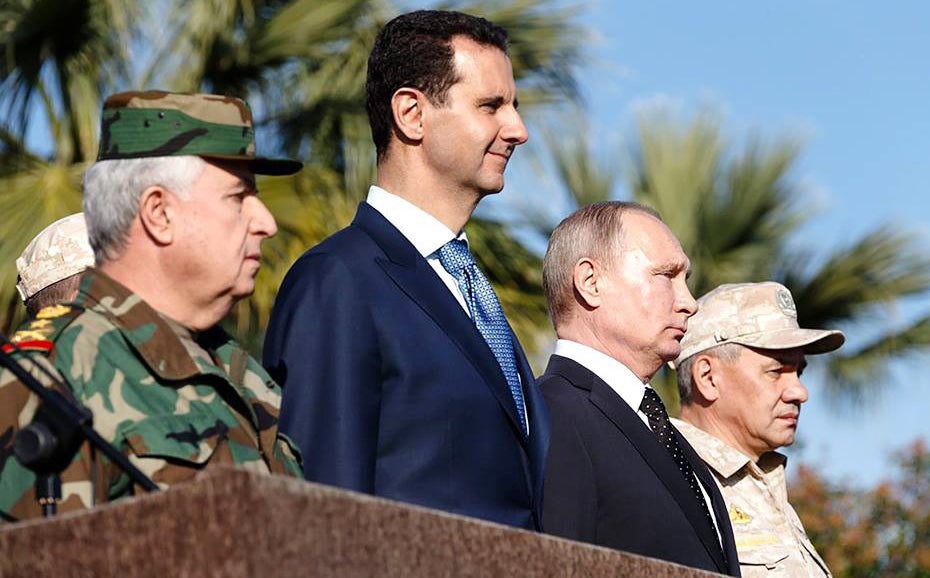Bashar al-Assad's Syrian government may be developing new types of chemical weapons, US says
Syrian authorities have repeatedly denied using chemical weapons

Trump administration officials have claimed the Syrian government may be creating new kinds of chemical weapons, despite a 2013 agreement to destroy such a programme.
The US officials said the administration was prepared to take military action to deter the use of such weapons amid the country's near seven-year civil war.
"It will spread if we don't do something," warned one official, speaking on condition of anonymity.
The US and Russia agreed to destroy Syria's chemical weapons arsenal in 2013, with weapons due to have been removed or destroyed by 2014. Several UN Security Council resolutions and the Chemical Weapons Convention also ban the use of such weapons.
However it was "highly likely" that Syria had stockpiled some of its weapons after the 2013 intervention, the Trump administration officials said in a briefing reported by Reuters.
The officials said the characteristics of recent alleged attacks suggested the creation of new, different chemicals weapons by President Bashar al-Assad's government. They believe the government is developing these weapons to improve their military capability, or to escape international accountability.
More recent attacks have involved both chlorine, which has non-chemical uses and is easier to acquire, and the more sophisticated chemical sarin, the officials said. The US believes it has a firm understanding of the extent of chemical use in Syria through a combination of intelligence, sample testing by third countries, and social media and other open-source information, the officials said.
The news came shortly after scientists for the Organisation for the Prohibition of Chemical Weapons (OPCW) said they had linked samples from the 2013 attack to the Assad government's stockpile, suggesting the government had been behind the attack all along. The scientists said the samples also matched those taken from the site of another alleged chemical attack last year.
The Syrian government has repeatedly denied using chemical weapons.

US President Donald Trump ordered an air strike on Syria last April, after a suspected chemical weapons attack killed more than 100 people, a move which marked a departure from Mr Trump's typically non-interventionist foreign policy.
A joint inquiry of the United Nations and the OPCW determined that the Syrian government used the nerve agent sarin in that attack on 4 April 2017, attack and also used several times chlorine as a weapon.
The US raised the concern of Mr Assad possibly using chemical weapons against his own people again last month, attack in the rebel-held area of Eastern Ghouta near Damascus. The alleged attack killed 20 civilians, most of whom were children.
The US State Department blamed Russia for their "unwillingness or inability to restrain the Assad regime".
Secretary of State Rex Tillerson said: “Russia’s failure to resolve the chemical weapons issue in Syria calls into question its relevance to the resolution of the overall crisis”
"Russia ultimately bears responsibility for the victims in eastern Ghouta and countless other Syrians targeted with chemical weapons since Russia became involved in Syria," Mr Tillerson said.
Diplomats from 29 countries gathered last month for the first meeting of a new organisation that will target governments who continue to use chemical weapons. The group plans to publish information about chemical attacks, and eventually sanction the perpetrators. They expected to put pressure on both Syria and Russia.
Join our commenting forum
Join thought-provoking conversations, follow other Independent readers and see their replies
Comments
Bookmark popover
Removed from bookmarks